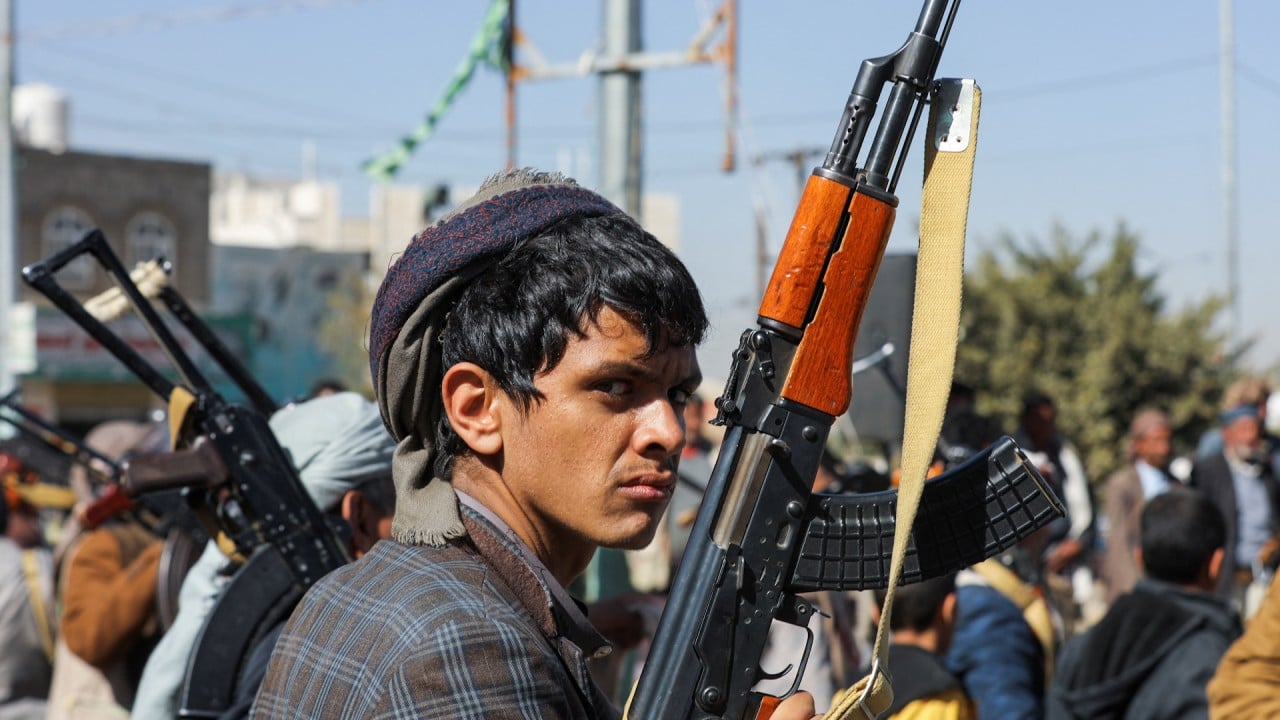
“Yes,” Biden said when asked Sunday in Las Vegas whether the US attacks are working.
The administration made clear it’s responding to other challenges too. US strikes on Saturday targeted Yemen-based Houthis who have roiled global trade by targeting commercial vessels in the Red Sea, hitting the militants’ weapons-storage facilities deep underground and not solely targets that posed an imminent threat.
That more expansive target list – and the expectation that the Pentagon will launch more strikes against Iranian assets and the country’s proxies – suggested that the US was broadening the scope of its campaign. In an interview with CNN, Sullivan declined to rule out “any activity anywhere,” including in Iran itself.
The Friday night attacks in Syria and Iraq were “designed to navigate the course between demonstrating, both politically at home and in the region, that we have capacity and capability to strike them hard,” while ensuring there’s no broader escalation, said Aaron David Miller, a former senior State Department official who’s now at the Carnegie Endowment for International Peace.
One senior administration official, who asked not to be identified discussing private deliberations, insisted that Biden isn’t getting pulled deeper into the Middle East conflict. The official said the US assessment so far is that the strikes in Yemen, Iraq and Syria have been effective in degrading the groups’ capabilities and their ability to resupply their weapons.
US Central Command said its forces on Sunday conducted strikes in self-defence against at least five Houthi anti-ship cruise missiles “prepared to launch against ships in the Red Sea.” US forces also conducted a strike against a Houthi land-attack cruise missile, Central Command said in a statement.
At the same time, the US sees the Houthis adapting, according to another official, who also asked not to be identified discussing internal assessments. The militants are getting better at targeting vessels even though they can’t yet overwhelm US defences, the official said.
For now, the group says it’s undaunted. Ali Al-Kahoum, a member of the Houthi political council, said there was now an “open war” and that the Houthis have the military capability to strike back. That opened the possibility of even more escalation and suggested the US message wasn’t getting through.
Even as the US contemplates more attacks, it’s pushing forward a deal being mediated by Qatar that would see Israeli and Hamas halt the fighting that began with that militant group’s October 7 attack in southern Israel. In return for an extended ceasefire, Hamas would agree to release most of the almost 140 hostages it still has under the deal, which the US believes is the only real way to defuse the regional crisis, according to one of the US officials.
Secretary of State Antony Blinken was headed back to the region on Sunday evening on his fifth extended tour of the Middle East since the war broke out in October. He plans to meet leaders in Israel, Egypt, Saudi Arabia and Qatar to push for more progress on the talks and also shore up support for the US-led attacks despite uneasiness from some partners about their pace and intensity.
Blinken does not see the strikes on the Iran-related targets as affecting chances for a deal providing for the release of Israelis held hostage by Hamas in tandem with a pause in the fighting in Gaza to allow for humanitarian aid to reach the area, a US official said.
Blinken also believes civilian deaths in Gaza are still too high and a deal to halt fighting would help to reduce that, the official said.
Iraq’s foreign minister summoned a senior US diplomat, David Burger, to protest the strikes against Iranian assets. Even so, US officials said the international consensus is on their side. Washington’s Arab allies in the Middle East are supportive of the US military response and recognise the US can’t tolerate attacks on its troops, according to one official from the region who asked not to be identified discussing the matter.
In Europe, though, there were reservations about the US actions. After an informal gathering of foreign ministers in Brussels on Saturday, European Union foreign policy chief Josep Borrell said the ministers had expressed “serious concern” about the US air strikes a day earlier.
US plans more strikes on Iran-backed groups
US plans more strikes on Iran-backed groups
“At any moment in this series of attacks and counter-attacks, a spark can create a greater incident,” Borrell said.
Former US officials and analysts said that the Biden team’s strategy – targeting Iran’s Quds force outside the country’s borders as well as specific groups it said were responsible for attacks on US bases and shipping – seemed clearly designed to send a message without triggering an escalation that could see a direct conflict with Tehran.
“If you look at the policy in totality, there’s an endgame objective of trying to punish Iran’s proxy forces while avoiding inflicting high costs on Iran directly – whether those are military, economic or political costs,” said Richard Goldberg, who served in former President Donald Trump’s National Security Council and is now a senior adviser at the Foundation for Defense of Democracies.
But, he said, “Iran has already escalated – and while it’s never easy putting a genie back in the bottle, the alternative is never-ending chaos, violence and distraction.”
EMEA Tribune is not involved in this news article, it is taken from our partners and or from the News Agencies. Copyright and Credit go to the News Agencies, email [email protected] Follow our WhatsApp verified Channel









